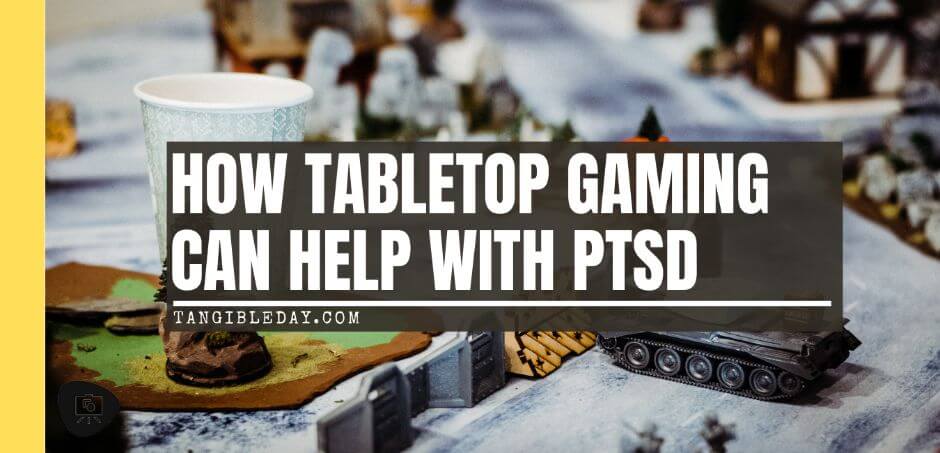People with post-traumatic stress disorder (PTSD) have a hard time finding ways to cope, and drugs are often not the best answer. Tabletop wargaming is becoming an increasingly popular way for those suffering from PTSD to take care of themselves without feeling like they’re neglecting their needs. It’s also a form of therapy that’s not controlled by pharmaceuticals or other treatments, which often carry other problems.
I wrote this article from the standpoint of a gamer and a neuroscientist. It’s rare to find people who regularly make time for meaningful discussions about sensitive topics, such as mental health, let alone take the time from their busy schedules to care about how these issues intersect with their hobbies, like tabletop gaming. I hope this piece spurs discussion and you find it helpful in understanding how our tabletop miniature gaming can potentially be an outlet for those struggling internally.
What is PTSD?
Post-traumatic stress disorder, or PTSD, is a mental health condition that is triggered by traumatic events (source). The most common cause of PTSD are ongoing experiences of intense fear, helplessness, or horror following a life-threatening event. Particularly susceptible are military veterans who have experienced trauma in their line of work involving risk to life and limb due to an act of war. However, anyone can experience it as the result of any severe traumatic event.
The symptoms of PTSD include: persistent memories of the traumatic event(s), recurrent upsetting dreams about it, uncontrollable thoughts about the event(s) and efforts to avoid anything that brings up memories of it, such as watching television shows or movies that depict the same event(s) or places that are similar to where it happened (source).
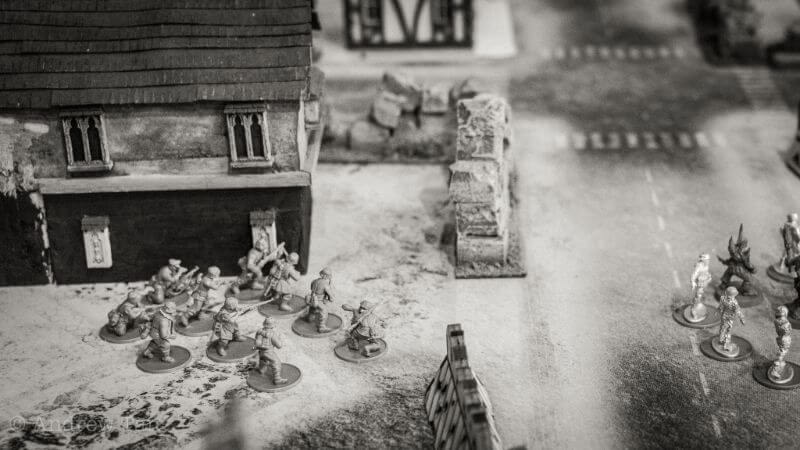
Some people with PTSD also have repeated physical reactions, such as heart palpitations, stomach upset or trouble swallowing, when they see the same things or go through the same experiences as during the traumatic event(s).
The severity of the symptoms varies and they might not all be present. PTSD can change over time, sometimes improving and sometimes getting worse.
Living with PTSD
Living with PTSD can be hard, depending on its severity, according to some reading I’ve done. Also, after speaking with friends with PTSD, I’ve learned that most cope quite well. But, everyone is unique in their ability to deal with environmental triggers.
Of course, life becomes full of triggers when you have PTSD, to where even a simple thing like someone asking you how you are can set off a panic attack. In fact, I think this is where PTSD becomes a societal issue that shouldn’t be swept under the rug.
Life with PTSD is often a terrifying game of Russian roulette. With each day, episodes of stress and panic, or simple confusion, invade unpredictably even with constant awareness. A PTSD sufferer may “always be on”, watching their back, their front, everywhere.
One thing that people with PTSD struggle to do is maintain relationships. With PTSD, having “normal relationships” helps with day to day living and quality of life. The last thing someone with PTSD needs is to feel like they are in house arrest. As such, a helpful strategy should be to find a group where they feel included as well for support when needed from others.
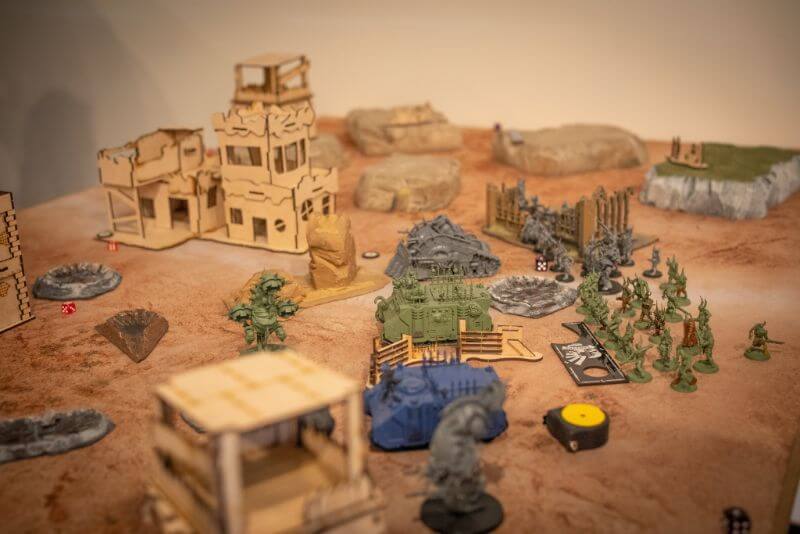
I have admittedly become overprotective, if this is the right word, of a few of my friends with PTSD and want to make sure they’re not overstressed or upset. But, that’s not helpful because this kind of thing adds more problems to the whole situation.
Anyway, can you imagine having everyone around you always asking how you are in a particular situation, and making sure you’re always comfortable? Maybe some need this. Though I’m certain it can also be a bit much. I don’t want to come off as callous or uncaring. Maybe, this is why many people don’t share their struggles. I think feeling normal goes hand-in-hand with being treated normal.
Drug Treatments for PTSD Doesn’t Always Work: What Next?
I won’t get into the types of drugs used to treat PTSD. There are many, and some I don’t agree work well, and may even be harmful. But, I know that for many people with PTSD, drugs aren’t the answer and are only a band-aid, a temporary salve.
As with all medications, PTSD meds don’t always kick in at the right time or lose their effect before the person can do whatever they need to do. As with other chronic issue sufferers, planning your life around your medications makes simple activities really complicated. How do you plan to socialize with friends at a moment’s notice? Or, lock yourself into a schedule for feeling “fine”?
I think with medications, the idea is to “escape” or “dull out” episodes that may make that period of time you’re living in more bearable. As mentioned, life is full of triggers and the battle you need to fight ensues at any time. The goal I suppose for someone with PTSD is to find a “space”, a block of time, where they can chill out and put their guard down.
How Tabletop Miniature Games Benefit Someone with PTSD
Hey, I’m no expert in PTSD. All I do is read and study it, and have close friends who live with it. But, I know that hobbies and games are major escape activities, the off-ramps of the hectic life highway we all travel on.
Something that PTSD sufferers need more than medication is an activity they can do to help them stay calm. Something that will keep their mind busy, so they don’t have to worry about triggers and episodes. That’s why tabletop miniature games are a potentially natural solution for PTSD sufferers.
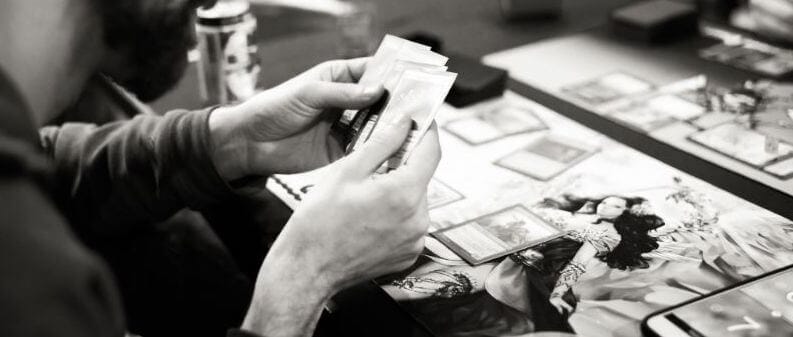
Hobby wargaming is a way to get away from the stress of life, but also have friends and connections that won’t judge you for who you are. Miniature tabletop games with great stories, model kit building, miniature painting, and an engaging gaming community, can absorb someone into a different mental space. And yet, they also allow someone to meet their social need for acceptance and support.
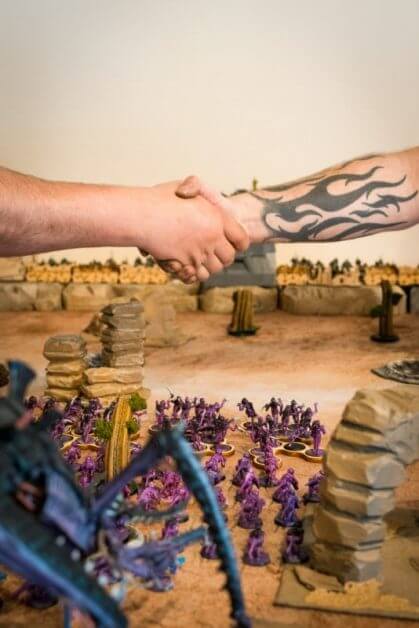
Tabletop miniature games help PTSD sufferers keep their mind busy so they don’t have to worry about triggers. Instead of constantly worrying and stressing out, ptsd sufferers are able to relax by building and engaging in a “story” with the people around them. When the person is alone, painting the miniatures of an army, such as for Warhammer, etc., continues this engagement, this escape. There is a skill to build, a discovery to make, and there’s a larger purpose instilled, continuously.
Miniature Tabletop Games: A Hobby for People with PTSD
Playing tabletop miniature games is a great way for PTSD sufferers to relax their mind. It lets PTSD sufferers have the time they need to take care of themselves without having to worry about the people around them. Playing tabletop miniature games, like video games, puts PTSD sufferers into an environment where they can be in control, which makes them feel more at ease and safe. It can also be a form of therapy where someone with ptsd can learn how to control and cope with their PTSD (source).
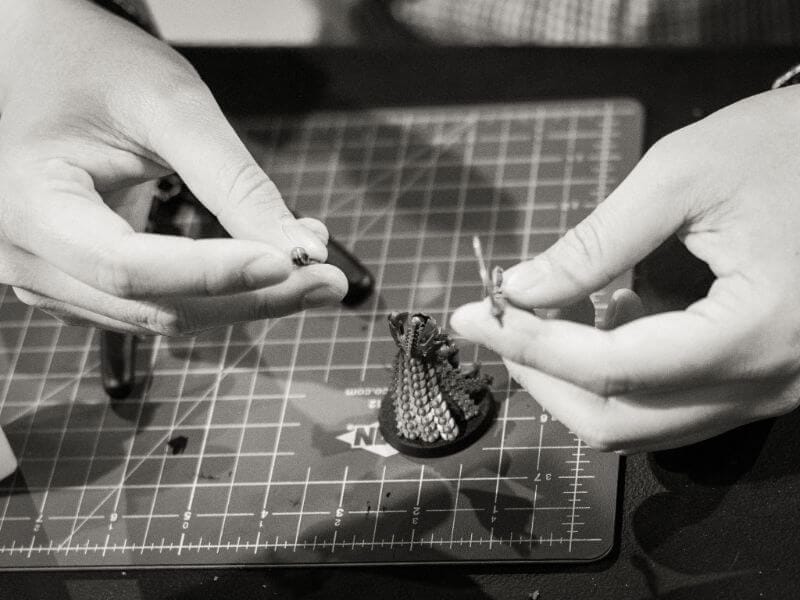
Being able to play the game with friends and have them take you seriously within a gaming environment, with its set rules and boundaries, is profound. With time, a person may find opportunities to open up and live peacefully within a group that keeps PTSD episodes at bay, and avoids having struggles from becoming a side attraction or a joke (which happens). There’s something about gaming that allows a person to share without feeling like “just complaining”.
Miniature hobby games are also different and good because you can make up a story. You can be in charge, or a part of the creative process. This is comforting for people who want something else from their lives other than video games. There is more engagement with these types of games, and they can be played alone or with others depending on the severity of your PTSD.
Is PTSD Prevalent in the Tabletop Gaming Community?
There are many tabletop games, e.g., board games, wargames, card games, RPGs. I think gaming in general is a major attraction for people who struggle with normal day to day routines and general life. It makes sense, since gaming (not gambling) is a healthy and effective escape and distraction.
Whether PTSD is prevalent in the miniature gaming community is not clear–no one has done a study. Though, I would venture to say that a good number of people specifically in the miniature tabletop gaming community suffer from PTSD. The miniature tabletop gaming hobby is big, like really big. It is a natural draw, because of how deep it is with all of its activities, skills, and its creative aspects. You build models, paint, craft, learn rules, read lore, play games, and much more.
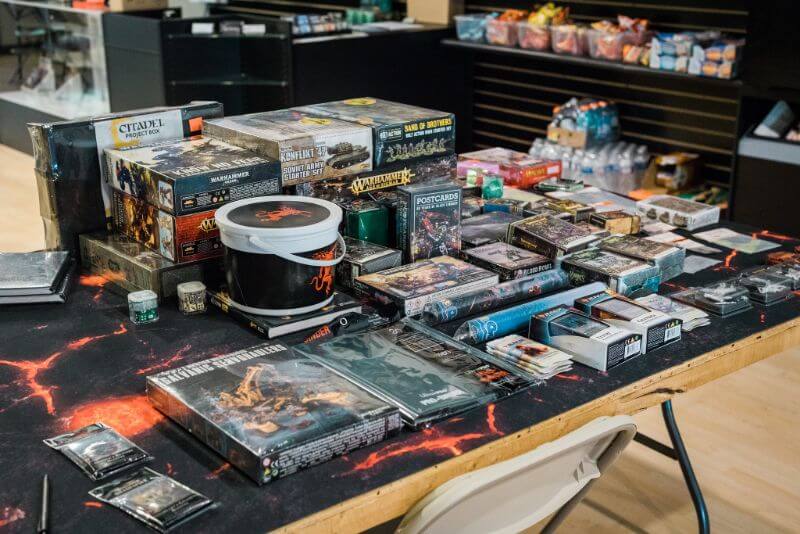
Final Thoughts
For some people, it’s not about treating their condition by eliminating or managing its symptoms. Instead, it’s about something more fulfilling in life than just watching TV or playing video games all day long. Tabletop hobby gaming provides an opportunity for socialization and connection–two things which are often lacking when someone is dealing with issues related to PTSD.
Tabletop miniature games, like Dungeons and Dragons or Warhammer, have been shown to help people feel less anxious around other individuals while simultaneously giving them a sense of belonging within a group (source). The focus is on the game, but at the same time a sense of trust and comradeship develops among those who are playing it together.
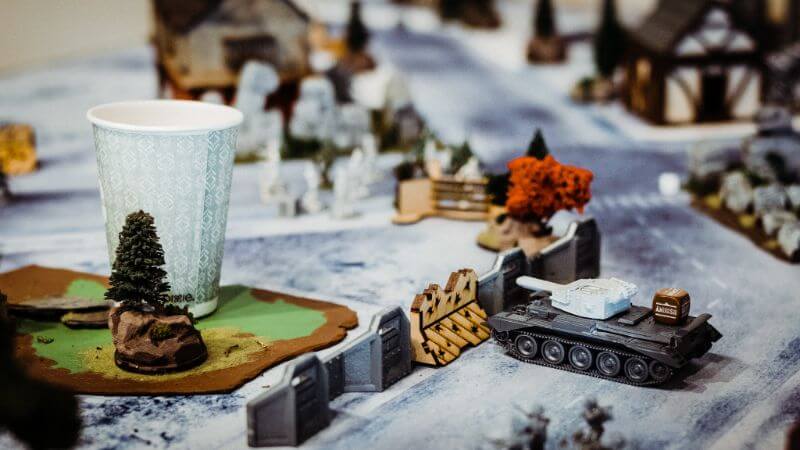
It’s also a great way to get involved in something productive that also teaches valuable skills. For example, learning how to develop strategies and think strategically, or engaging in creative artistic activities like painting models or writing. These are the kinds of things which help you succeed at work and in life generally, so tabletop games and its related hobbies are not only fun but can build future life skills.
It’s also worth noting that some tabletop games and board games are not as expensive as some people might think. So next time you have a spare hour or two and feel like doing something different to take your mind off the pressures of life, try playing a fun tabletop game with friends or family members.
Overall, everyone benefits in a community where they can learn how to rely on one another (i.e., learn rules and play), and teach and feel like they’re helping others, too. A great gaming community is a healthy give and take.
I hope you found this article helpful. If you have any input, feedback, and comments regarding how PTSD affects the hobby gaming community, I’d love to hear from you! Leave a comment below.

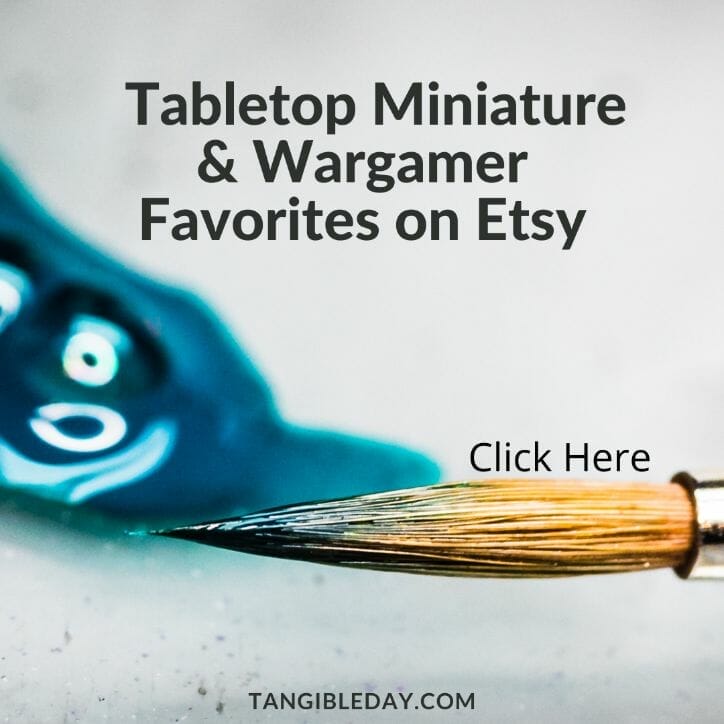
Tangible Day on YouTube (Miniatures and More!)

